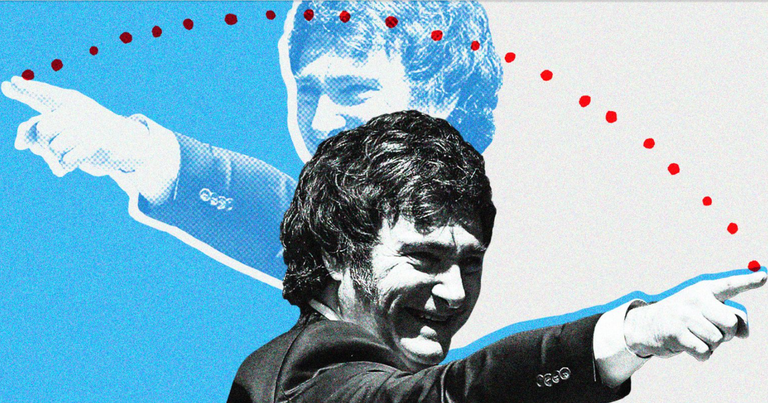
I have been following the situation in Argentina with a skeptical eye since Javier Milei was democratically elected as the new president of the country. However, what really sparked my interest in writing this blog, was a recent happening in the congress in Argentina when a politician pertaining to Milei’s political party suggested the possibility of selling one own’s kids in times of necessity (only the oldest of the offspring, I might say). The outrageous claims that Milei and his vassals voice fall nothing short of a dystopian futuristic world pictured in any of Aldous Huxleys novels. I do not blame Argentinians in taking drastic measures after the long and weary decline of their country’s economy. When faced with impossibly frustrating living conditions people tend to take drastic measures. Alas, I am not here to blame Argentinians for their decision, but to take a closer look at Milei’s political party’s decisions and ideology. I am here to give a more economic perspective on the viability of a hyper liberalized market. You would be surprised how against this goes to traditional capitalist values. The notion of selling one’s kids in the free market is not capitalism and you should not be swayed by those proclaiming a different belief. This goes against the fundamental value of individual freedom and sounds like a modern version of slavery. Milei is as capitalist as Stalin was a communist, only in paper.
From an economic point of view, it looks to me like Milei is an extreme market libertarian skewing towards something akin to an anarcho-capitalist regime trying to minimize all governmental involvement in the economy. In Milei’s discourse the state is the source of all evils and inefficiencies, an entity restraining the true power of market liberalism. It seems that the market is an almighty unerringly efficient machine that brings solutions to all problems, an amoral deity that will bring salvation to us all. But, is it? We tend to idealize easy solutions to complex problems and we tend to forget that markets are driven by people. Markets do not exist in an extraplanar plane where morality and human vices do not exist. Markets are a reflection of the human psyche, with their defects and virtues. There will always be people willing to buy/sell immoral services or products, to the detriment of all others. There will always be people willing to amass fortunes and power to marginalize and take advantage of those vulnerable.
Liberalizing markets without control would mean destroying many of the core human values that we have developed in the past centuries, giving free rein to much of the depraved parts of our psyche. The Chicago school of economics was very aware of the mechanics of the markets, which is why you will never read any of the founding fathers of modern capitalism advocating for the total destruction of the state. The state is a fundamental entity for capitalism to work to oversee contractual obligations and protect people, anyone saying the contrary does not understand the basics of market dynamics or is pushing forward a populist agenda.
I want to stress that the market liberalism core theory was written hundreds of years ago based on Adam Smith, David Ricardo, John Stuart Mill and John Locke. How the markets dynamics looked like back then are incredibly different to today’s world. In the 18th and 19th centuries, markets were characterized by direct, personal interactions between buyers and sellers and economic transactions were predominantly face-to-face, and the flow of information was slower and more localized. Technologies have given us the power of anonymity where we have detached a great deal of the human interactions in markets. The anonymity and detachment of modern markets also multiply the problems related to accountability, trust, and ethical behavior. The lack of personal interaction leads to a sense of impersonality and detachment, giving free rein to bad actors in the economy. This makes me wonder, why are we still using outdated models to solve modern problems?
Sadly, the idea of extreme market liberalization is becoming more and more predominant in the modern political discourse. I urge everyone that holds such ideas to read extensively on the fundamental values and dynamics of capitalism. Don’t be swayed by easy solutions to complex economic problems, be skeptical and critical towards those that put the people at the service of the economy. Our economic models should be serving people, not the other way around. Our economic models should empower people, not force them to sell their kids in the “free market” when they are in dire need.
If you wanna read more of my stuff - here is my substack: https://economicresonance.substack.com/
Congratulations @arkadik! You have completed the following achievement on the Hive blockchain And have been rewarded with New badge(s)
Your next target is to reach 20 posts.
You can view your badges on your board and compare yourself to others in the Ranking
If you no longer want to receive notifications, reply to this comment with the word
STOP